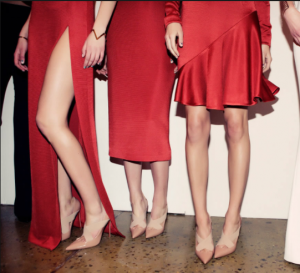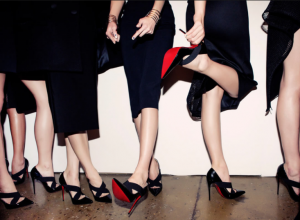
Over the years as a personal trainer, I have noticed a large majority of my female clients tend to complain of lower back and knee problems. Besides the obvious anatomical reasons such as wider hips, I always felt other factors contributed to the aches and pains. Having wider hips forces the femur to angle inward, placing stress on the medial aspect of the knee, which can cause knee problems. A recent study has revealed that wearing high heels may exacerbate this structural imbalance.
Danielle Barkema, a Kinesiology Graduate at Iowa State University, studied the effects of women wearing high heeled shoes. The study looked at the how wearing shoes with varying heel heights, may contribute to knee osteoarthritis and joint degeneration over time.
Since women begin wearing high heels at a very young age, test subjects were studied who wear high heels for at least two days a week. 15 women were studied using flat shoes, 2″ heels and 3.5″ heels. Barkema measured the forces on the knee joint and the shock that travels up the leg during the heel strike phase of walking. What she found was: as heel height increases, so does the compression on the medial or inside aspect of the knee. She measured the effects using camera’s, sensors, accelerometers and a force platform. Her findings show that over time, wearing high heels even two days a week and greater than 2″ can greatly contribute to a degeneration of the knee joint and lead to osteoarthritis.
In addition, wearing heels over 2″ in height also effects the individuals walking pattern, subsequently changing the position of the ankle, knee, hip and trunk. This altered walking pattern may lead to lower back problems as well.
If you’re having knee problems you may want to see your doctor or physical therapist.
knee pain from high heels







